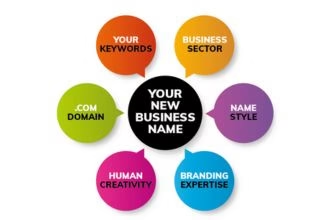The Psychology of Nigerian Consumers: What Triggers Purchase Decisions?
Understanding what drives Nigerian consumers to make purchase decisions is key to succeeding in one of Africa’s largest markets. With over 200 million people, Nigeria’s diverse culture, economic conditions, and social dynamics shape how people buy. This blog dives into the psychology behind Nigerian consumer behavior, exploring what triggers their decisions and how businesses can use these insights to connect with customers. By focusing on practical strategies and real-world examples, this post will help you craft marketing plans that resonate with Nigerian buyers.
Why Consumer Psychology Matters in Nigeria
Consumer psychology looks at why people buy what they buy. In Nigeria, factors like culture, trust, affordability, and social influence play a huge role. Nigerians are savvy shoppers who balance emotional and practical needs when spending. For businesses, understanding these triggers can boost sales, build loyalty, and help brands stand out in a crowded market. With Nigeria’s growing digital economy, knowing what motivates buyers is more important than ever.
Key Triggers for Nigerian Consumers
Let’s break down the main factors that influence Nigerian purchase decisions. These insights come from observing market trends, cultural norms, and consumer habits.
1. Affordability and Value for Money
Nigerians are price-sensitive due to varying income levels. Many prioritize products that offer the best value for their money. This doesn’t always mean the cheapest option – it means quality at a fair price. For example, a Nigerian shopper might choose a durable, slightly pricier phone over a cheaper one that breaks easily.
To tap into this:
- Highlight cost-saving benefits, like discounts or free shipping.
- Offer flexible payment plans, like pay-later options popular with platforms like Jumia.
- Show how your product lasts longer or saves money over time.
2. Trust and Brand Reputation
Trust is a major driver in Nigeria. With a history of scams and counterfeit goods, consumers prefer brands they know and trust. They often rely on word-of-mouth recommendations or reviews from friends and family. For instance, a Lagos-based shopper might choose a trusted brand like Indomie noodles over an unknown competitor.
Build trust by:
- Partnering with local influencers who have credibility.
- Displaying customer reviews and testimonials on your website.
- Ensuring consistent quality to avoid negative feedback.
3. Social Influence and Community
Nigerians are highly social, and community plays a big role in buying decisions. People often look to peers, family, or social media influencers for guidance. For example, fashion trends on Instagram can spark a rush to buy certain outfits, especially during festive seasons like Christmas or Sallah.
To leverage this:
- Use social media platforms like Instagram and Twitter to showcase your products.
- Create campaigns that encourage user-generated content, like sharing photos with your product.
- Engage with local communities through events or sponsorships.
4. Cultural and Religious Values
Nigeria’s diverse cultures and religions shape buying habits. For instance, during Ramadan, Muslim consumers may prioritize halal products or festive foods. Similarly, Igbo traders might value bulk discounts for resale, while Yoruba families might splurge on aso-oke for weddings.
To connect culturally:
- Tailor marketing to specific cultural or religious events, like Eid or Christmas.
- Use local languages or slang in ads to feel relatable.
- Respect cultural norms in product packaging and messaging.
5. Convenience and Accessibility
Nigerians value convenience, especially in urban areas like Lagos and Abuja, where fast-paced lifestyles demand quick solutions. Online shopping has grown, with platforms like Konga making it easy to buy from home. However, poor logistics or long delivery times can deter purchases.
Improve convenience by:
- Offering fast, reliable delivery options.
- Creating a user-friendly website or app for easy browsing.
- Providing multiple payment methods, like mobile money or card options.
6. Emotional Appeal and Aspiration
Nigerian consumers often buy based on emotions or aspirations. Many associate certain products with status or success. For example, owning a sleek iPhone or wearing designer clothes can signal achievement. Brands like MTN tap into this by linking their services to dreams of connectivity and progress.
To appeal emotionally:
- Use storytelling in ads to show how your product improves lives.
- Highlight aspirational benefits, like how a product boosts confidence.
- Create campaigns that celebrate Nigerian pride or success.
How to Apply These Insights
Now that you know what triggers Nigerian consumers, here’s how to use this knowledge to drive sales.
Create Targeted Marketing Campaigns
Use data to segment your audience. For example, young urban Nigerians might respond to trendy social media ads, while older rural consumers prefer radio or TV. Tailor your message to each group’s needs. A campaign for a skincare brand could highlight affordability for budget-conscious buyers and prestige for aspirational ones.
Optimize for Mobile and Social Media
Over 60% of Nigerians access the internet via mobile phones, according to recent stats. Your website and ads must be mobile-friendly. Use platforms like Instagram, Twitter, and WhatsApp to reach consumers where they spend time. Short, engaging videos or posts with local influencers can boost engagement.
Build a Strong Online Presence
SEO is critical to trending on Google in Nigeria. Use keywords like “Nigerian consumer behavior,” “buying habits in Nigeria,” and “how to market in Nigeria” naturally in your content. For example, this post is optimized to rank for terms Nigerian businesses search for. Include keywords in your title, headings, and throughout the text, but keep it natural to avoid penalties.
Offer Promotions and Discounts
Promotions are a huge draw. Black Friday sales or festive discounts can trigger impulse buys. For example, Jumia’s annual Black Friday event sees massive traffic because Nigerians hunt for deals. Time-limited offers create urgency, pushing consumers to act fast.
Focus on Customer Experience
Great customer service seals the deal. Nigerians value brands that respond quickly and solve problems. Train your team to handle inquiries politely and efficiently. A positive experience, like a hassle-free return, can turn a one-time buyer into a loyal customer.
Challenges to Watch Out For
Marketing in Nigeria isn’t without hurdles. Here are common pitfalls and how to avoid them:
- Logistics Issues: Poor road networks can delay deliveries. Partner with reliable logistics firms.
- Low Trust in Online Payments: Offer cash-on-delivery to ease concerns.
- Cultural Missteps: Avoid generic ads that ignore local nuances. Research your audience thoroughly.
Why Understanding Nigerian Consumers Is a Game-Changer
Nigeria’s market is growing fast, with a young, tech-savvy population driving demand. By understanding the psychology behind their purchase decisions, you can create products and campaigns that hit the mark. Whether it’s affordability, trust, or cultural relevance, aligning with these triggers builds stronger connections with your audience.
Conclusion
The psychology of Nigerian consumers revolves around value, trust, community, and aspiration. By crafting marketing strategies that speak to these triggers, businesses can win over this vibrant market. Focus on clear, relatable messaging, mobile-friendly platforms, and excellent customer service. With these steps, your brand can stand out and drive sales in Nigeria’s dynamic economy.
Ready to connect with Nigerian consumers? Start by contacting Bintus Art and Everything, we research your audience, test campaigns, and optimize for SEO. With the right approach, you can turn casual shoppers into loyal customers.
Image source: Novatiaconsulting.com






